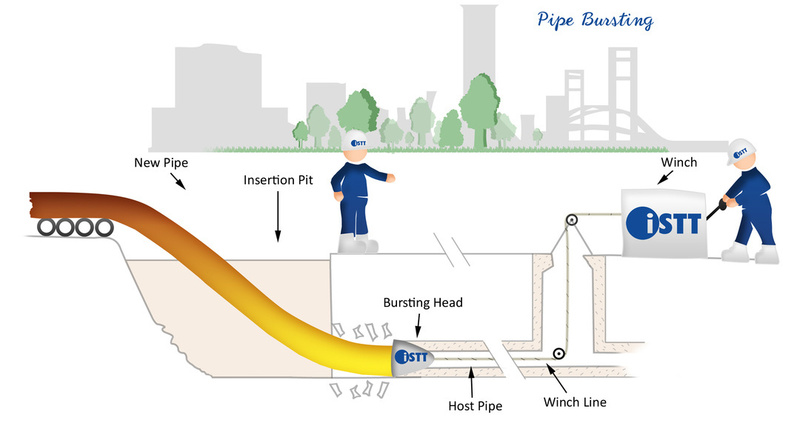Pipe bursting is a trenchless method used to replace existing pipelines in the same alignment without physically removing the existing pipeline. By using the existing alignment to replace a pipe, the need to secure additional right-of-way to install the replacement pipe can be avoided. Bursting can be used to upsize the pipeline increasing its flow capacity. Pipe bursting was initially developed in the 1980s to replace small diameter cast iron gas distribution lines, but has since grown in acceptance as an effective method for replacing pipelines diverse in size, material type, and function including water, sewer, or gas pipelines. Pipe bursting is used to replace brittle pipes such as clay, concrete and cast iron through the application of a static or pneumatic bursting head to fragment the existing pipe.

The pipe bursting process consists of advancing a conical-shaped bursting head that has a diameter 50 to 100 mm larger than the new replacement pipe, through the existing pipe. The radial expansion caused by the geometry of the bursting head fractures the host pipe and displaces the pipe fragments and the ground area surrounding the pipe. Simultaneously, a new product pipe attached to the back of the bursting head is pulled into the space created by the bursting head.









